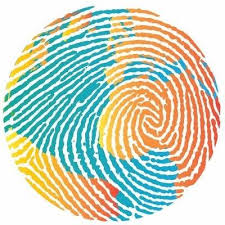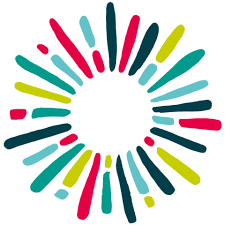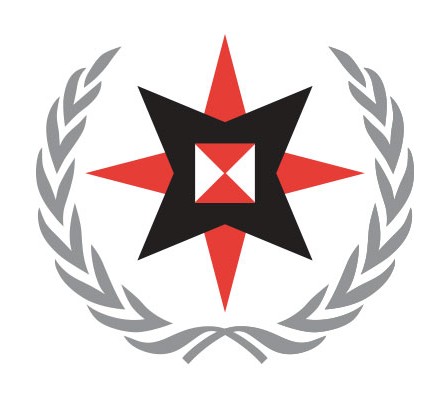SDGs: accountability under threat
The United Nations’ latest annual review of progress on the Sustainable Development Goals (SDGs) saw numerous states that restrict civil society and repress human rights participate in a public relations exercise to talk up their achievements. Sickeningly, Israel claimed to be meeting the SDGs’ promise of ‘leaving no one behind’ while carrying out genocide. The meeting showed how the exclusion of civil society at the national and global levels means the human rights and social justice focus of the SDGs is being lost. With the SDGs coming under renewed political attack, led by the Trump administration, civil society needs to be recognised as a genuine partner.
This year’s United Nations (UN) review of the Sustainable Development Goals (SDGs) witnessed an extraordinary denial of reality. A state that is currently committing genocide took centre stage at a key global development forum to claim it’s championing the principle of ‘leaving no one behind’. Israel’s report offered a particularly stark example of how states are paying lip service to social justice principles while attacking human rights.
Ten years after all UN member states agreed the 17 SDGs – a set of progressive goals to improve human lives and protect the planet – they met at UN headquarters in New York from 14 to 23 July for their annual meeting to assess progress. The High-level Political Forum (HLPF) saw 35 states present their Voluntary National Reviews (VNRs), self-reporting on their achievements.
But amid the UN’s bureaucratic processes and blatant state propaganda, the progressive aims of the SDGs often went missing. Several states presenting reports this year aren’t doing anything to respect human rights – they’re suppressing them.
The problem with a process that gives the floor to states to talk up their achievements was exemplified when Israel presented its report, claiming to be focusing on marginalised communities while engaged in what a UN special rapporteur describes as ethnic cleansing. Astonishingly, Israel reported on its work to improve food security even as it’s using starvation as a weapon of war against Gazans, causing what UN officials call potentially ‘catastrophic hunger’.
This was the strongest show of hypocrisy, but it wasn’t the only one. Authoritarian Belarus, home to numerous political prisoners, proclaimed its achievements while blaming any shortcomings on ‘unilateral coercive measures’ by western states in retaliation to its support for Russia. El Salvador banged the drum for its ‘comprehensive transformation’ under the increasingly autocratic rule of President Nayib Bukele, who conveniently waited until after the summit to announce the removal of presidential term limits. India, whose government vilifies civil society, claimed to be ‘creating strategies through partnership with’ it.
Civil society: the missing partner
The problem runs deeper than state hypocrisy. Civil society – supposedly a key partner in achieving the SDGs – is systematically excluded from meaningful participation.
The SDGs reflect the fact that they were developed following sustained civil society advocacy. Goal 17 recognises the importance of civil society partnerships to achieve all goals, while goal 16, on peace, justice and strong institutions, acknowledges the need to respect fundamental freedoms, including freedoms of association, expression and peaceful assembly, which define civic space. One of goal 16’s indicators – the number of human rights advocates, media workers and trade unionists killed, kidnapped, disappeared, arbitrarily detained and tortured – makes clear why civic freedoms matter.
Yet global trends are regressive. In the decade since the SDGs were agreed, civic space has deteriorated around the world. Over 70 per cent of the global population now lives in countries where civic space is routinely repressed. Only five of the 35 countries that presented VNRs this year have open civic space. In contrast, 24 subject civic freedoms to severe restrictions.
The VNRs can only present a true picture of development progress if they’re authored through a consultative process where civil society can share its view on successes, challenges and solutions. But that can’t happen in countries where independent civil society is routinely penalised for asking questions of the government or criticising its performance.
Restricted national-level civic space is echoed in the highly limited role civil society has in SDGs processes, and in the UN system in general. While it’s recognised as good practice for states to consult civil society before drafting their VNR reports and include civil society representatives as independent experts in their HLPF delegations, very few do so.
Access barriers and funding crisis
It’s a challenge for civil society even to get to New York. Problems include short-notice registration deadlines, high travel costs, opaque decision-making about UN support and difficulties in getting visas to enter the USA. Entry to the USA has become much harder under the second Trump administration, and activists now have to weigh the risks of potential detention and deportation if, for example, their social media history is searched on arrival.
On top of these barriers has come a still unfolding civil society funding crisis. This is exemplified by Trump’s rapid destruction of what was the world’s biggest aid agency, but other donor states once supportive of civil society are also making sharp cutbacks, including the Netherlands, Sweden and the UK, reflecting growing nationalist influence and shifts towards military spending.
This retreat from support is bringing the future of many civil society organisations (CSOs) into question and making it hard to prioritise participation at international events. The result is that only bigger and wealthier CSOs can maintain a stable presence in New York. This means when members of global south excluded groups get a chance to speak, their participation can feel tokenistic.
Civil society representatives that do manage to participate can face intimidation. In recent years there’ve been reports of states targeting civil society representatives who make statements at the HLPF that challenge official reports or present alternative data. There’ve been instances of threats and surveillance ahead of sessions. Some CSOs have felt forced to drop out of UN processes as domestic civic space has deteriorated. This year, several civil society participants reported feeling uneasy about naming specific countries in their remarks during the opening session. All of this encourages self-censorship and further closes down civil society space.
It’s the UN’s responsibility to try to prevent this. But instead of playing an enabling role at this year’s event, UN security officers reportedly policed the outfits of participants from women’s rights organisations, asking them to remove scarves they wore in symbolic protest. Civil society has also complained that the UN doesn’t do enough to protect them from reprisals.
The funding crisis threatens to further limit the space for civil society’s participation. The UN is already scaling back Human Rights Council sessions, for example, as part of its cuts in response to shortfalls. This is being done in the name of efficiency, but civil society’s further exclusion can only make UN processes less effective.
SDGs under political attack
Reduced space for civil society comes at a time when the SDGs are under unprecedented political assault. They’re supposed to be achieved by 2030 but are way off track: only 17 per cent of targets are on course.
Resourcing is a major challenge, with the recent financing for development meeting failing to unlock progress following processes that kept civil society’s ideas off the table. The estimated funding gap for the SDGs stands at US$2.5 trillion to US$4 trillion a year. States have consistently broken promises on funding.
Deeper political problems underlie these failures. Funding decisions reflect populist and nationalist shifts in many countries, driving movement towards autocracy and a retreat from multilateralism. The unanimity with which the SDGs were adopted in 2015 no longer applies. Years of online conspiracy theories and disinformation claiming the SDGs were part of a sinister plot to construct a new world order have made an impact.
As on funding, the Trump administration leads the backlash. In March, the US government said it ‘rejected and denounced’ the SDGs, particularly because of their focus on climate and gender. Other governments could follow suit, undermining the universal nature of the goals. In April, Costa Rica’s President Rodrigo Chaves issued a decree to withdraw from the SDGs, although his government has since backtracked.
These political challenges meant that for the second year running, the HLPF’s final ministerial declaration was adopted not by consensus, as is the UN’s custom, but following a contested vote. Israel and the USA joined together to vote against its adoption, while Iran and Paraguay abstained. Other states spoke out to disassociate themselves from some of the declaration’s terminology.
Individual parts of the declaration also went to contested votes. What in 2015 would have been an uncontroversial paragraph recognising the interconnected nature of development, peace, human rights and good governance was put to a vote. Israel and the USA voted against and, troublingly, a further 36 states abstained. References to women’s rights, including reproductive rights, and workers’ rights were similarly contested.
Civil society calls for reforms
Civil society is responding by trying to improve collaboration and coordination among organisations. To address travel barriers, it’s calling for sessions to be rotated around countries global south civil society finds easier to access and the expansion of online participation.
Civil society groups have come together in the UNMute initiative, winning support from over 50 states, to make a series of practical recommendations to improve civil society access across the UN. These include the appointment of a UN civil society special envoy, improvements to visa processes for people from global south civil society and the establishment of an International Civil Society Day.
But deeper domestic changes are also needed. National-level reviews must be much more participatory and focused on constructive criticism and genuine accountability. Even in countries with relatively open civic space, states often handpick those they consult, and grassroots groups on the frontlines of delivering real change may be unaware reviews are taking place. Once reports are completed, they often exist only on paper, with a lack of follow-up and little government engagement with civil society about implementing recommendations.
Civil society produces shadow reports, but there’s no official space for them. At best, it presents them in side events. But states shouldn’t be left to mark their own homework, and civil society is calling for shadow reports to be integrated in official reports.
Time to put human rights at the centre
The progressive nature of the SDGs is being lost, with states pursuing at best technocratic approaches to development that prioritise top-down control over genuine partnership. The goals may have been agreed through a consultative process, but the fundamentally state-centric way they’re implemented and assessed points to the weaknesses of international agreements without adequate democratic accountability mechanisms. Civil society, offering ground-up cooperation and scrutiny, remains the missing ingredient.
There’s no such thing as development without human rights. States may impose programmes that produce some material gains, but these are unlikely to reach excluded groups and can be withdrawn on a whim because they’re not rooted in rights. Top-down development threatens human rights when infrastructure projects displace communities and spoil local environments, and when those speaking out about these problems face repression. Development efforts succeed when people have space to articulate their needs, challenge unwanted state interventions and monitor where funding goes.
The 10-year experience of the SDGs only emphasises the need for genuine development partnerships that advance human rights and social justice, underpinned by respect for civil society and civic space. States that say they value human rights should lead the way by opening up their SDG processes to civil society.
OUR CALLS FOR ACTION
-
Governments should consult civil society and incorporate disaggregated and citizen-generated data when preparing voluntary national reviews and enable civil society to present shadow reports at the High-level Political Forum.
-
The United Nations should mandate independent verification of voluntary national reviews and triangulation of government data with civil society and citizen-generated evidence.
-
The United Nations must actively promote its Guidance Note on the Protection and Promotion of civic space to enable safe and effective civil society participation.
For interviews or more information, please contact research@civicus.org
Cover photo by Global Call to Action Against Poverty/Twitter





